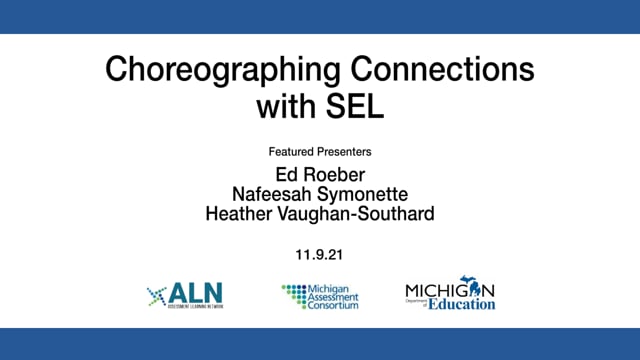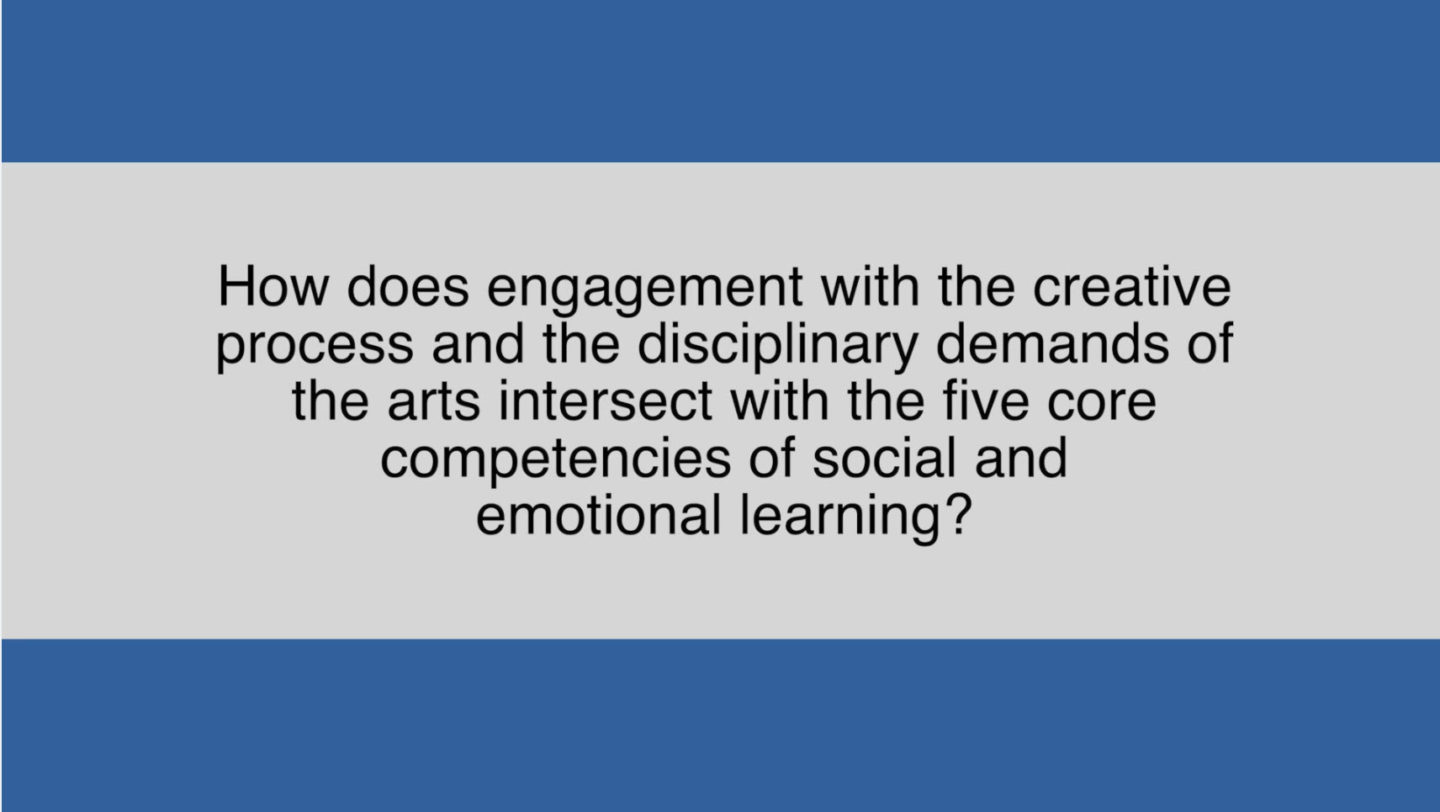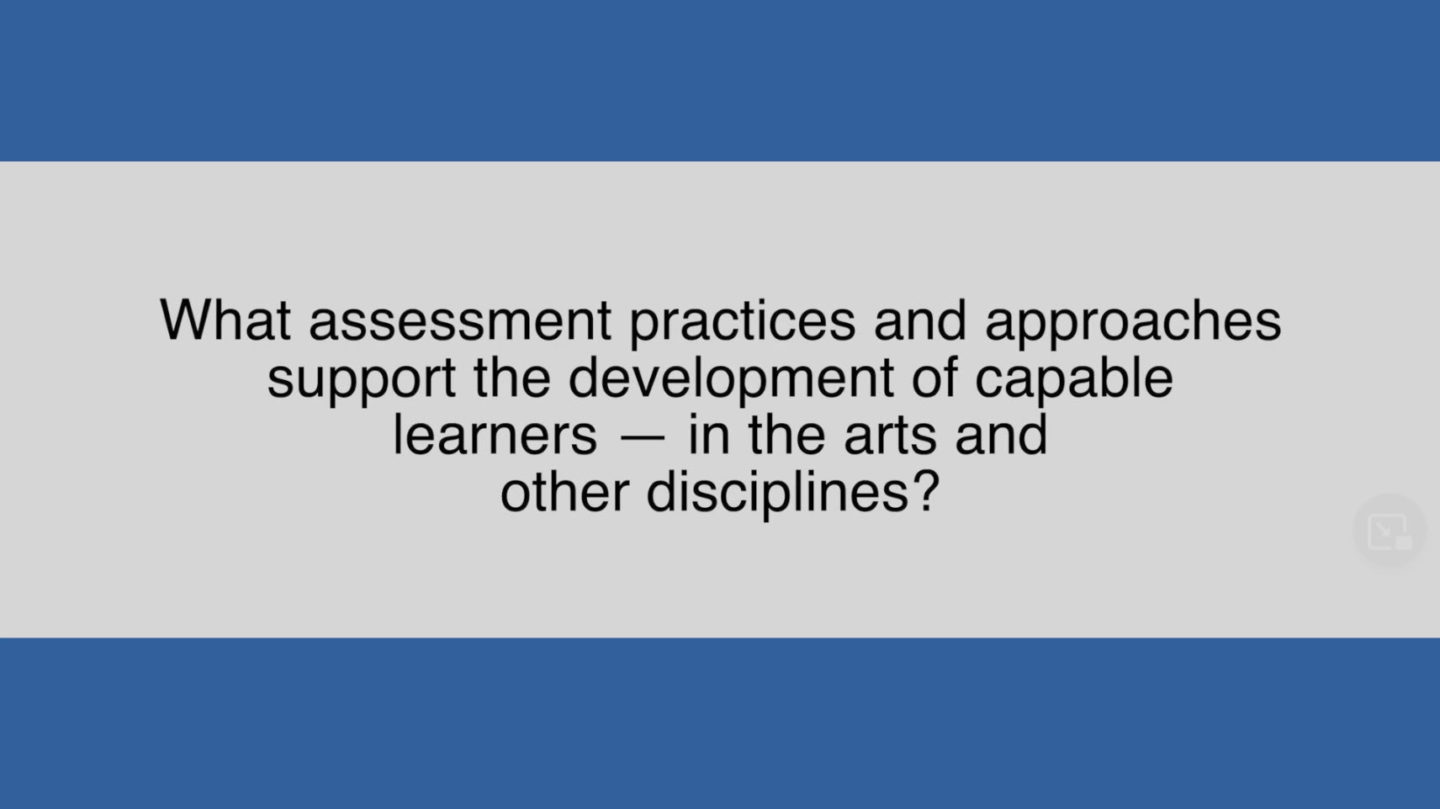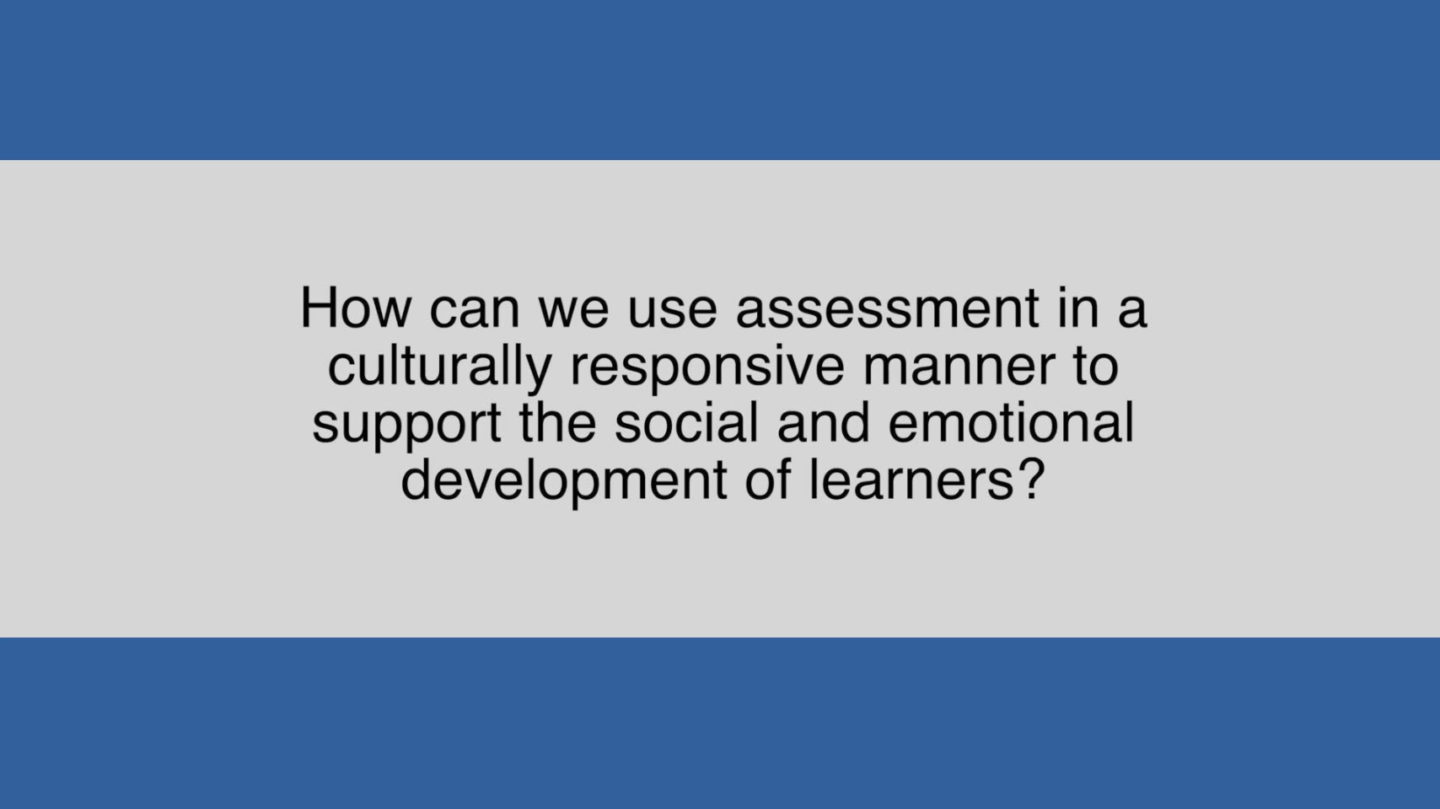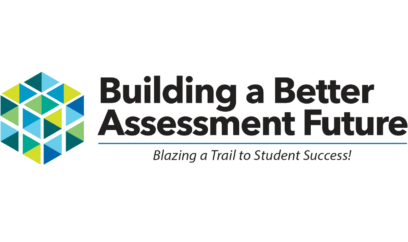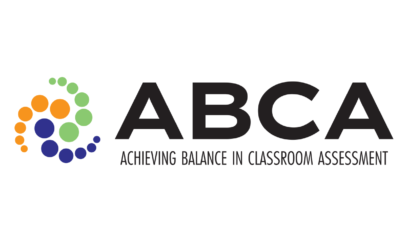The theme for the 2021-22 Assessment Learning Network is leveraging assessment to achieve equitable access and outcomes for all students through an emphasis on assessment practices most relevant to students’ efforts to increase their own learning.
How might we better understand the intersection of social and emotional learning (SEL) and assessment practices and approaches designed to support learning? How might this knowledge contribute to a student’s ability to become a capable learner? This ALN session will explore some of what the Michigan Assessment Consortium has discovered in its quest to answer these questions through investigations in the context of the arts.
Eighteen months of pandemic learning has heightened our awareness of social emotional learning and well-being. The learning disruptions we’ve experienced have exacerbated existing inequities in society and at school. The arts reinforce the importance of the Whole Child approach to education and have provided immediate, important, and authentic connections and illustrations for teaching and assessing in ways that explicitly address the five core competencies of SEL.
Questions Framing this Session
- How does engagement with the creative process and the disciplinary demands of the arts intersect with the five core competencies of SEL?
- What are the assessment practices and approaches that support development of capable learners – in the arts and other disciplines?
- How can we use assessment in a culturally responsive manner to support the social-emotional development of learners?
Presentation Video
ALN Presentation: Choreographing Connections with SEL (to view chapters, open in Vimeo at https://vimeo.com/644815332.)
Presenter: Heather Vaughan-Southard
Heather Vaughan-Southard is the Professional Learning Director for the Michigan Arts Education Instruction and Assessment project (MAEIA) and a consultant for The Polyvagal Institute. As a former director of dance programs in K-12 and higher education, Vaughan-Southard represents the body within social-emotional learning and represents the arts as a critical component of a well-rounded education, honoring the wholeness of both children and educators.

Presenter: Nafeesah Symonette
Nafeesah Symonette holds a Bachelor of Fine Arts in drawing and painting, K-12 teaching certification and a Master of Art in Arts Administration from Eastern Michigan University. She is a champion of arts education and advocacy and has dedicated her research to focus on the intersection of arts education and culturally responsive teaching. Nafeesah recently received a DEI in the Workplace Certification from the University of South Florida, Muma College of Business and is passionate about using it to prepare practitioners in arts education as an Adjunct Professor at Oakland University and Eastern Michigan University.
In 2011 Nafeesah was the recipient of the District of Columbia’s Mayor’s Art Award for Excellence in Visual Art Secondary Teaching. With twenty plus years in the field of arts education, including teaching experience and program development, Nafeesah is well versed in best practices for the art educators classroom. She has served as the Manager of Art Education at Paint Creek Center for the Arts in Rochester, Michigan and currently operates as a visual arts education consultant using her ability to think big to move arts education forward. Nafeesah is a board member of PuppetArt Detroit, a 501c3 non-profit that explores storytelling through the magic of puppetry. She is co-chair of the Anton Art Center’s I.D.E.A. Advisory Council and a member of the Michigan Council on the Arts and Cultural Affairs, Arts Education Committee. Her goals are simple, to support the opportunity for access, outreach and expansion of the arts in an effort to improve individual and community outcomes.
Presenter: Ed Roeber
Since 2007, Ed has provided research and leadership for such efforts as the development of Michigan’s Assessment Literacy Standards, the Michigan Arts Education Instruction and Assessment (MAEIA) program, Formative Assessment for Michigan Educators (FAME), and most recently the Michigan Collaborative Scoring System (MI-CSS). He has authored numerous white papers, articles, Learning Points, and other publications for the MAC, and he provides support and guidance for MAC initiatives such as the Assessment Learning Network and Michigan Learns Assessment credentialing program.



